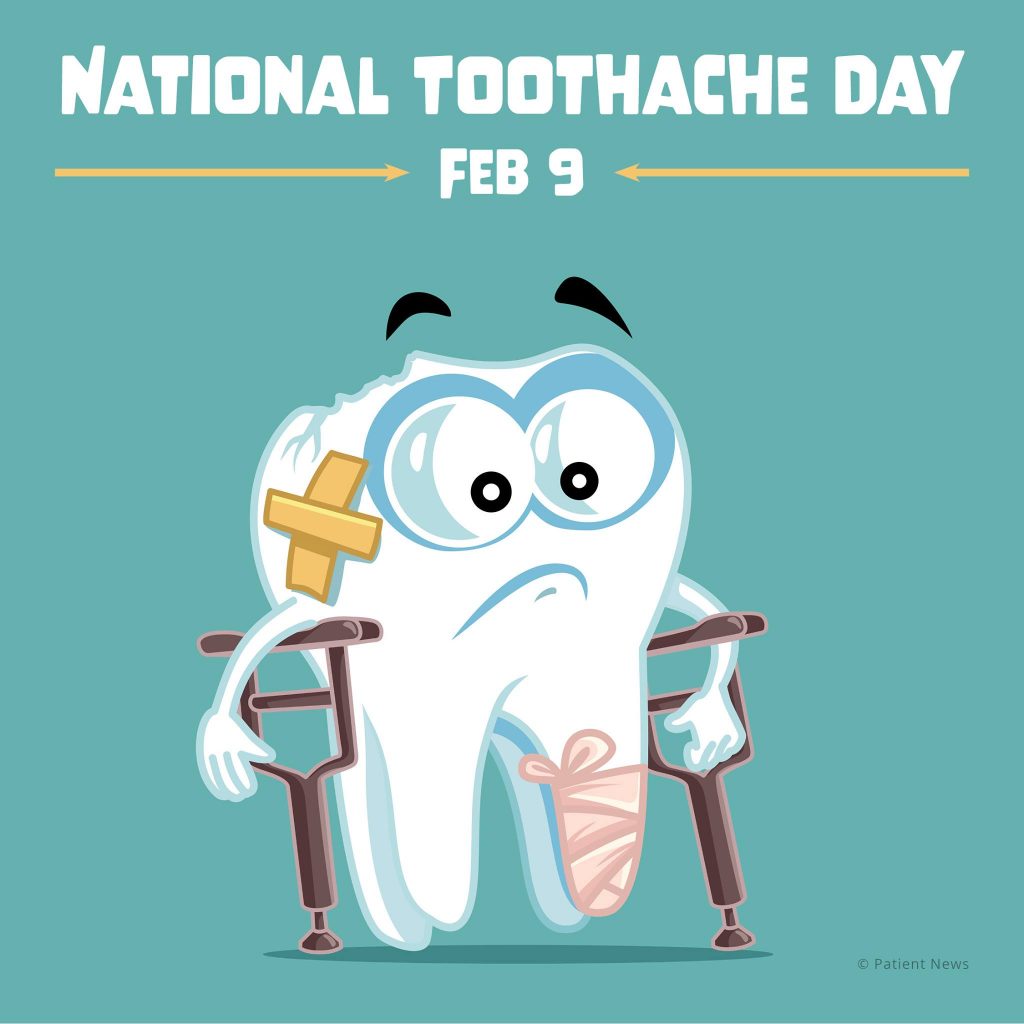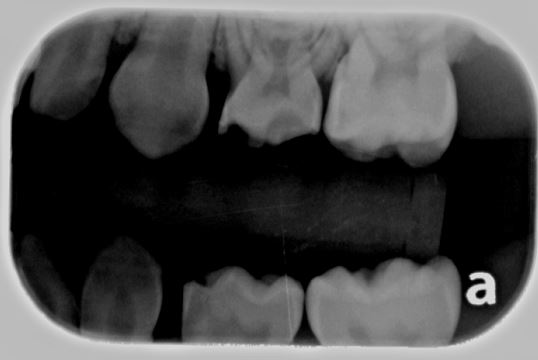National Toothache Day!
02.09.23 - Education, Pediatric Dentistry News

February 9th is National Toothache Day; while this is not a holiday to celebrate it does offer us a chance to share some important information with you about toothaches. This blog will review some of the basic information involving toothaches, as always call your dental professional to receive personalized advice and treatment options.
What Causes a Toothache?
There are many things that can cause an ache in the tooth or mouth. Sometimes it can be as simple as a new adult tooth erupting (coming into the mouth). Other causes include decay (cavities), abscess (infection of the tooth), or fracture (broken tooth).
How Will My Dentist Find the Problem?
Determining the cause of the discomfort is crucial to finding the proper treatment.
- The dentist will start by asking questions about the pain: is it constant, is it throbbing or a sharp pain, is it caused by eating hot or cold foods, do you remember any trauma (damage) to the tooth, along with any other relevant or specific questions.
- The dentist will look in your mouth to help evaluate for any changes or concerns that can be seen visually.

- X-Rays may be necessary in order to gather information that cannot be seen with the naked eye. X-rays help dental professionals to see the roots of the teeth, the bone surrounding the teeth, and all the layers of the teeth.
How Will My Toothache Be Treated?
The treatment for a toothache is dependent on the cause of the toothache and there is sometimes more than one option for treatment.
If the cause is a new tooth coming in, simple pain relievers are often enough to ease the discomfort. A cavity will require a filling while abscesses require resolving the infection of the tooth and preventing it from coming back. A fractured tooth can sometimes be treated with a filling but other times may require more involved treatment to achieve lasting results.
How Can I Prevent a Toothache?
A toothache is often the result of an accident or an underlying problem that went undiagnosed for a long time. A toothache cannot always be prevented but taking the proper steps can help to make it less likely.
- Regular trips to the dentist and visits with your dental hygienist.
- Having a great homecare routine: Brushing for 2 minutes 2 times a day, flossing once a day.
- Do not chew on foreign objects like pen caps or straws and quit fingernail biting habits quickly.
- Call our office at 207-883-4203 at the first sign of an infection, broken tooth, or when experiencing pain.

